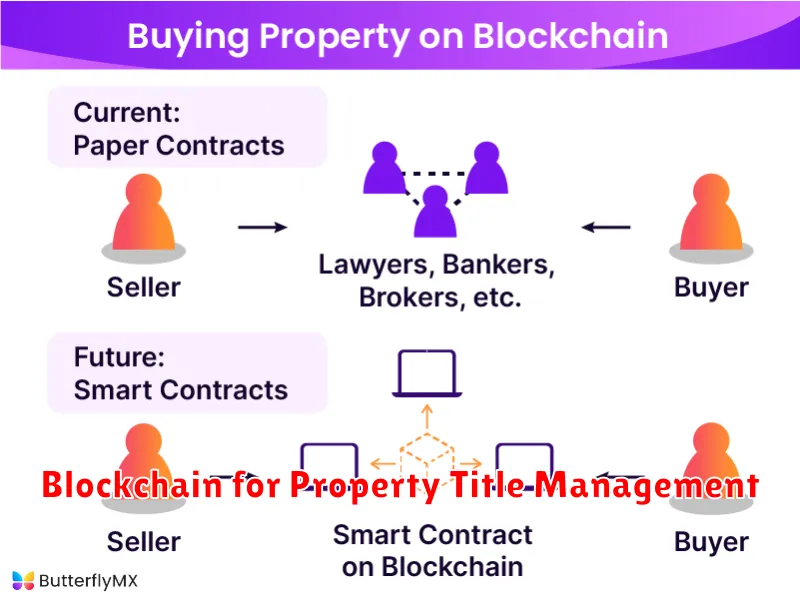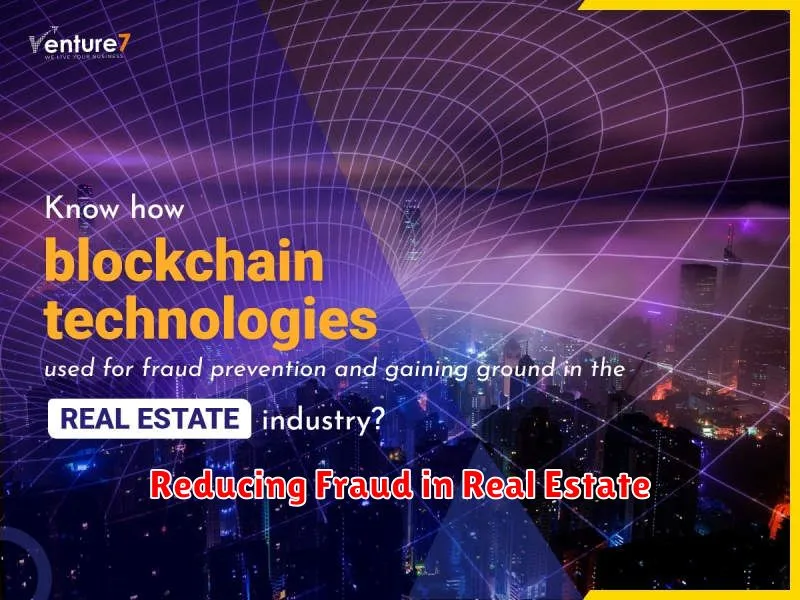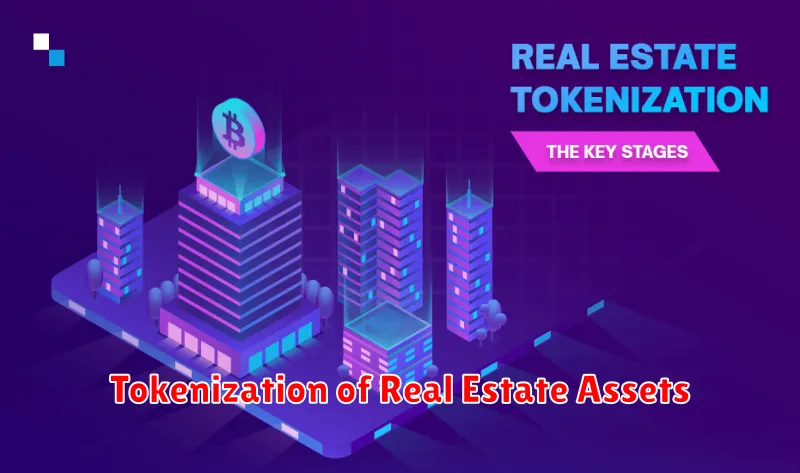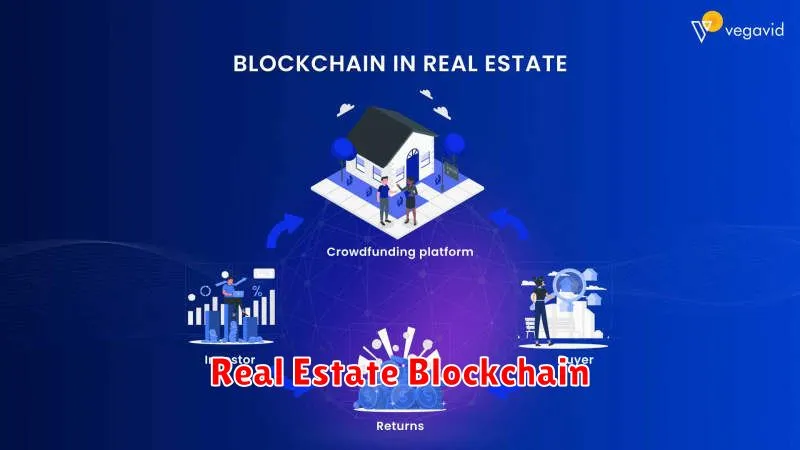The real estate industry is ripe for disruption, and blockchain technology is poised to revolutionize property transactions. This article explores how blockchain is transforming the landscape of real estate, offering increased transparency, security, and efficiency in processes ranging from property registration and title transfer to smart contracts and fractional ownership. Discover the potential of blockchain to streamline real estate investments and unlock new opportunities in the global property market.
Smart Contracts for Transparent Transactions

Smart contracts are self-executing contracts with the terms of the agreement between buyer and seller directly written into lines of code. This eliminates the need for intermediaries, significantly streamlining the real estate transaction process.
In real estate, smart contracts offer enhanced transparency. All transaction details, from property ownership to payment terms, are recorded on a blockchain, creating an immutable and auditable record accessible to all parties involved. This reduces the risk of fraud and disputes.
The automation facilitated by smart contracts accelerates the closing process. Automated payments and property title transfers occur upon fulfillment of predefined conditions within the contract, minimizing delays and administrative overhead.
Furthermore, increased security is a key benefit. The decentralized and cryptographic nature of blockchain technology protects against data tampering and unauthorized access, ensuring the integrity of the transaction records.
While adoption is still evolving, the potential of smart contracts to revolutionize real estate transactions through increased transparency, efficiency, and security is undeniable. They represent a significant step towards a more efficient and trustworthy property market.
Blockchain for Property Title Management

Blockchain technology offers a revolutionary approach to property title management, addressing long-standing issues of inefficiency and security within traditional systems. By recording property ownership on a decentralized, immutable ledger, blockchain eliminates the need for intermediaries like title companies, reducing costs and speeding up transactions.
Transparency is a key benefit. All stakeholders can access the verifiable history of a property’s ownership, minimizing disputes and fraudulent activities. This enhanced security significantly reduces the risk of title fraud, a major concern in real estate.
The automation inherent in blockchain streamlines the title transfer process. Smart contracts automate aspects of the transaction, such as verifying ownership and releasing funds upon completion, further reducing delays and costs. This ultimately creates a more efficient and secure real estate market.
While challenges remain in widespread adoption, such as regulatory hurdles and technological integration, the potential of blockchain to transform property title management is undeniable. It promises a future where property transactions are faster, cheaper, and more secure for all parties involved.
Reducing Fraud in Real Estate

Blockchain technology offers a powerful solution to the prevalent issue of fraud in real estate transactions. The decentralized and immutable nature of a blockchain creates a transparent and auditable record of ownership, significantly reducing the risk of fraudulent activities such as double-selling, title fraud, and forgery.
By establishing a single source of truth for property records, blockchain eliminates the possibility of conflicting information or manipulated documents. All participants in a transaction—buyers, sellers, agents, and lenders—can access and verify the authenticity of the information on the blockchain in real-time, fostering greater trust and accountability.
Furthermore, the use of smart contracts automates various aspects of the transaction process, minimizing human intervention and reducing the opportunities for fraud. Smart contracts enforce pre-defined terms and conditions, ensuring that all parties adhere to the agreed-upon agreements. This automation enhances efficiency and security, ultimately creating a more secure and reliable real estate ecosystem.
The enhanced security provided by blockchain technology not only protects buyers and sellers but also strengthens the integrity of the entire real estate industry, leading to increased market confidence and reduced transaction costs associated with fraud prevention and resolution.
Streamlining Rental Agreements

Blockchain technology offers a significant opportunity to streamline the often cumbersome process of rental agreements. Smart contracts, self-executing contracts with the terms of the agreement directly written into code, can automate many aspects of the rental process.
This automation eliminates the need for intermediaries, reducing costs and accelerating the process. Transparency is significantly improved, as all parties have access to the same immutable record of the agreement on the blockchain. This minimizes disputes and increases trust between landlords and tenants.
Furthermore, security is enhanced. The decentralized and encrypted nature of the blockchain protects against fraud and unauthorized modifications. Rent payments can be automated through the smart contract, ensuring timely and secure transactions. This leads to a more efficient and reliable rental experience for both landlords and tenants.
Ultimately, the use of blockchain for rental agreements promises a more efficient, transparent, and secure system, benefiting all participants in the real estate market. The potential for reduced paperwork, faster processing times, and minimized disputes makes it a promising development in the future of property management.
Tokenization of Real Estate Assets

Tokenization of real estate assets involves representing fractional ownership or other property rights as digital tokens on a blockchain. This allows for the creation of fractional ownership, making traditionally illiquid assets more easily tradable.
These tokens can represent various interests, including ownership shares, debt, or other rights related to a property. This opens the door to greater liquidity, increased accessibility to investors, and streamlined transactions.
The blockchain’s inherent security and transparency contribute to a more secure and efficient process. Smart contracts automated on the blockchain can further automate aspects of the transaction process, reducing costs and improving efficiency.
Benefits include enhanced liquidity, improved accessibility for investors, lower transaction costs, and increased transparency and security.
However, challenges remain including regulatory uncertainty, technological hurdles, and the need for widespread adoption.
